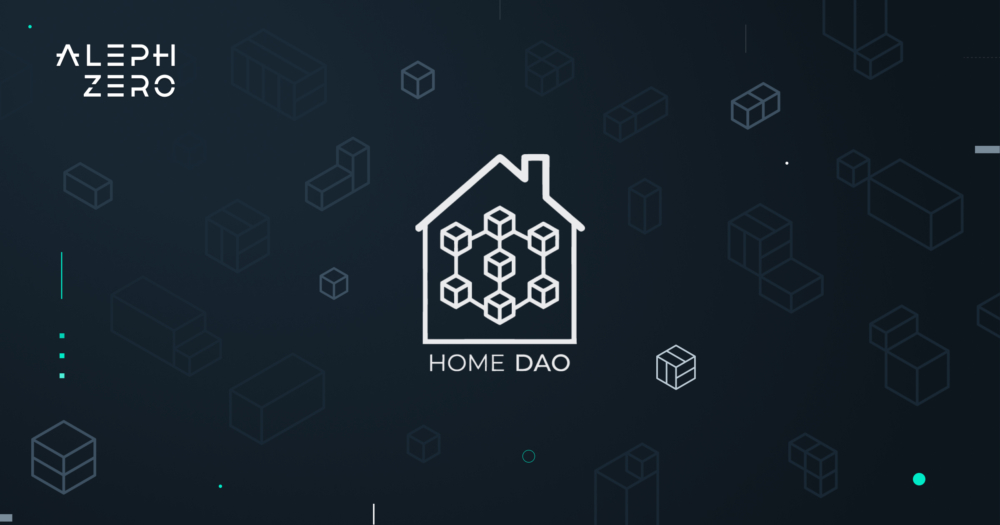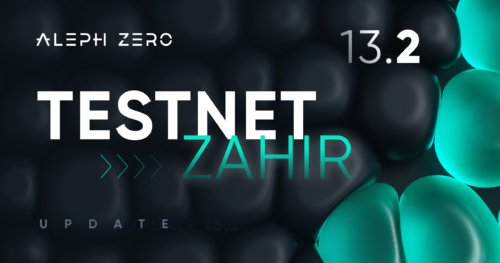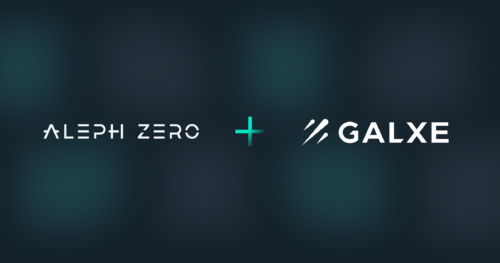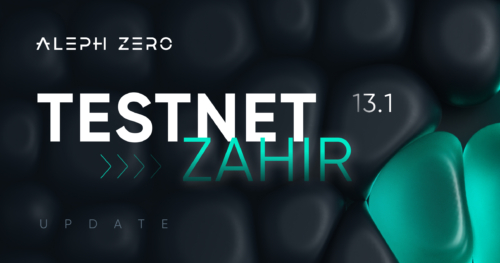Aleph Zero House: joining Oxford’s HomeDAO to incubate ZK use cases
Jan 25, 2024

Aleph Zero joins HomeDAO to support Web3 founders. Learn more about the Aleph Zero House, HomeDAO and the Oxford Crypto Village.
January 24th, 2024, marked the continuation of an initiative at Oxford University, led by HomeDAO. The ‘Aleph Zero House’ is now underway, with the goal of finding and supporting interesting use cases that showcase the capabilities of Aleph Zero and drive value to its blossoming ecosystem.
There’s already an interesting use case building on Aleph Zero – Octopus – that hasn’t been announced previously. Dive in!
What is HomeDAO?
HomeDAO is a startup society based in Oxford for Web3 founders, focused on the growth and incubation of startups dedicated to the construction and growth of the third web. Established in November 2022, it built the Oxford Crypto Village, a unique network of hacker houses and workspaces that foster innovation and collaboration. To date, HomeDAO has successfully incubated seven Web3 startups, such as Rhinestone, and GPUEVM.
Projects incubated in HomeDAO have been backed by some of the industry’s top investment firms, such as 7%, Lattice, 1kx, Animoca Brands, Maven11, and Geometry.
HomeDAO is also supported by Nickel Digital, NEAR Protocol, ConsenSyS, and Alan Howard. The project has been backed by prominent investors and individuals, such as the Tezos Foundation, Hyperithm, Whitestone, the Rutland Foundation, Pragma, and Tom James, the first investor in ZenDesk.
Winning every ETH Global hackathon attended
HomeDAO brings together ambitious minds in Europe to collaborate around blockchain technology and its applications. Capitalizing on changes in working culture following the lockdowns of 2020, HomeDAO enables co-living and co-working to create an intense and rewarding environment for outliers who would otherwise be in isolated silos.
Potential members can apply to HomeDAO and benefit from exposure to like-minded founders, as well as downstream benefits such as access to capital and frontier thinking. Since launch, HomeDAO members have won 12 international hackathons out of the 12 they have attended, including ETH Tokyo, ETH Vietnam, ETH India, ETH Waterloo, ETH Denver, ETH Paris, ETH Amsterdam, and ETH Beijing.
Sponsors and partners work with HomeDAO to engage the industry’s most committed and thoughtful minds and help them solve their most challenging problems.
The Aleph Zero House: ‘Just’ the Beginning
The Aleph Zero House will be focused on the opportunities and design space that zero-knowledge technology creates. Nascent projects include a trustless wallet scoring protocol, infrastructure to identify DeepFakes, and developer tooling that allows for trustless, cheap, and efficient querying of graph properties in just one line of code. Below is a high-level overview of all three:
Octopus
Octopus is a deep-tech company leveraging Zero Knowledge Machine Learning (ZKML) to create an open standard for content provenance, positioned as the trustless, private, and censorship-resistant alternative to C2PA. Starting with the ideologically aligned web3 community, the initial go-to-market is web3 games, ads, and social media.
Advances in AI have caused the number of deepfakes online to explode since 2019. Content generation costs for deepfakes are approaching zero, and yet there is no infrastructure to control and monetize the explosion of synthetic media. The implications are severe: from misinformation on channels like YouTube, creating false STEM content to peddle conspiracy theories, threatening creative authenticity and the future of human creativity; and in the political sphere, where AI-crafted ads loom over elections, whether false speeches from Biden, or doctored images of Donald Trump’s fictitious arrest. Octopus plans to solve such problems in the coming months.
Graphite
Graphs are one of the best ways to represent on-chain data. But querying them transparently has two issues: it is either extremely costly (due to gas fees) or ineffective (due to block size), or it requires knowledge of domain-specific languages that leverage ZK technology. This means that trustlessly establishing that wash trading has been identified, or that airdrops have been distributed fairly, or that an aggregator has found the best price available, is too difficult for even an experienced developer.
Graphite solves this by allowing anyone familiar with Python to query graphs in just a few lines of code, significantly increasing the scope of data availability and accessibility. We anticipate that this can become a significant infrastructure for future on-chain applications.
Tanuki Protocol
The off-chain world benefits from significant amounts of data when assessing the viability of a transaction or economic arrangement. Whether it’s an insurance product or a social network, credentials and identity-based assessments are very helpful to efficiently allocate resources. For example, someone with an immaculate history of repaying debts is much more likely to repay a future loan than someone with a history of delays or even bankruptcy. However, the ‘black box’ nature of the models used to make these predictions is often considered unfair and even discriminatory.
Tanuki is a wallet-scoring protocol that uses ZKPs to trustlessly verify identity on-chain. This enables the next wave of DeFi and other crypto applications and highly increases the sophistication of on-chain activity and products.
We’re looking forward to seeing the growth of projects in the Aleph Zero House! As part of this initiative, we’ll also participate in ETH Oxford –see you there!


